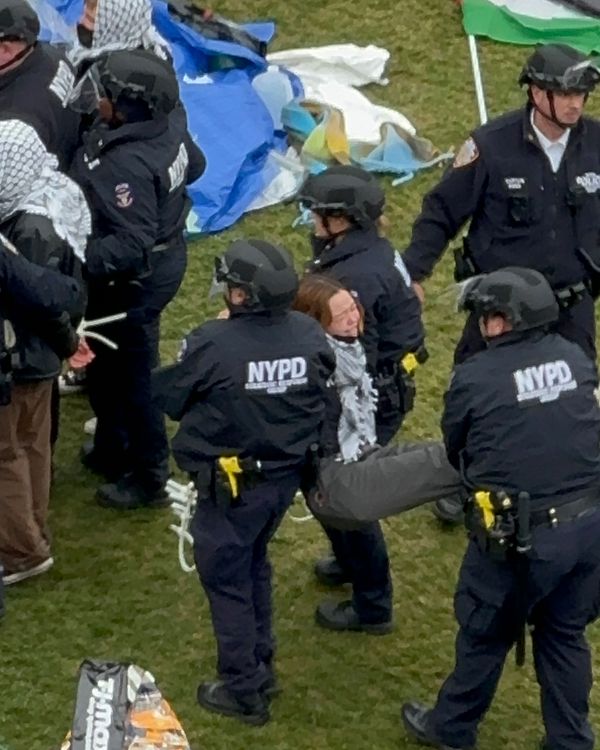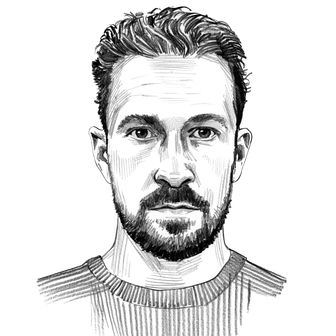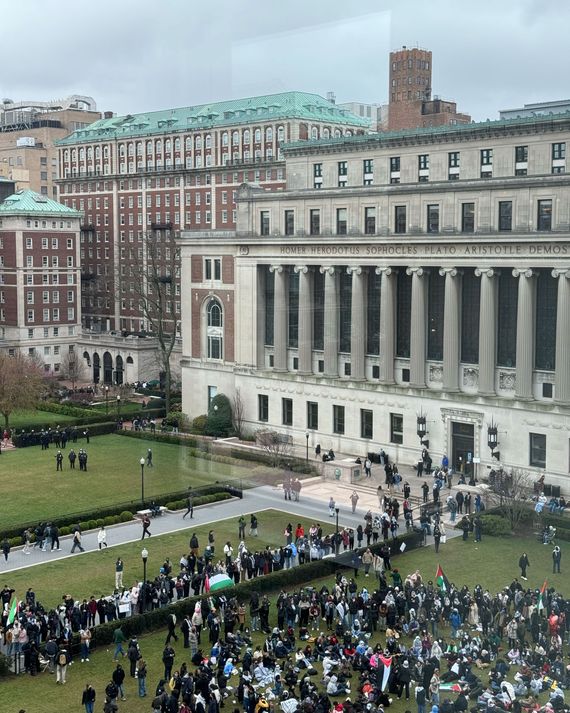
Columbia University struck hard against pro-Palestinian protesters on Thursday, suspending student demonstrators and authorizing the NYPD to break up an encampment at the heart of campus. Police made more than 100 arrests as part of a promised crackdown by the university’s president, Nemat Shafik. Below is what we know about what happened.
Police arrested more than 100 people
During an evening press conference, Mayor Eric Adams confirmed the NYPD arrested more than 100 people after students occupied the school’s South Lawn for more than 30 hours.
“Columbia University has an obligation to protect their students and the
the university’s president reached out to the NYPD, in writing, and asked for support,” Adams said. “After numerous warnings, campus security and NYPD issued to the students and those who were occupying the space, NYPD officers moved in to ensure the safety of the campus, the students, and the staff.”
According to NYPD commissioner Edward A. Caban, detainees were cited on charges of trespass. Just before 7 p.m., more than 100 protesters remained on a portion of the lawn immediately adjacent to the area cleared by police hours earlier. A handful of tents put up earlier in the day had been taken down. Students were sitting on blankets and handing out hand warmers, preparing for a cold night ahead.
The protests aren’t over
Several hundred pro-Palestinian demonstrators from Columbia and CUNY gathered outside the campus entrance at 116th and Broadway, following a march around the block which stopped traffic in both directions.
The march started suddenly after a protester was abruptly arrested by NYPD and pushed into a patrol car across Broadway. Protesters followed shouting “shame!” at a Jewish student who was defending the arrest. Other protesters shouted “Don’t let them distract you!” in an effort to diffuse the situation and prevent further arrests.
Moments later, the protesters pushed out of their enclosure, knocking over barriers, and stopped traffic on Broadway. “Take the streets!” they shouted before jogging north. The protesters quickly circumnavigated campus shouting, “The people united will not be defeated!” among other chants. Students left dorms on 114th Street to join them. Blocked MTA buses honked in solidarity, while pro-Israel protesters yelled from the sidewalk.
Back on Broadway, drones hover overhead as the temperature seems to be cooling down momentarily. The chant is currently, “This is our sidewalk. These are our streets. This is our university. And Palestine is our land.”
The police commissioner was on campus
Edward Caban was spotted as NYPD officers made arrests:
‘Who runs Columbia? Students run Columbia!’
Approximately 300 protesters gathered on the east lawn, where they handed out food and erected three tents. The small encampment is opposite the west lawn where police broke up the first encampment.
“We will not move! we will hold our ground until the university administration agrees to all our demands,” pledged one speaker.
“We demand complete financial divestment from every corporation that deals in death, and not in life,” said another through a loudspeaker.
The crowd began to chant: ”They are merchants of death, we teach life.”
“Who runs Columbia? Students run Columbia!”
A campus locked down and feeling betrayed
Police shut down some entrances to campus, which was placed on lock down. One remained open at West 115th Street and Broadway, where a line of students formed to enter. A block away on 116th Street, about a hundred protesters were surrounded by police in riot gear who looked on at demonstrators wearing keffiyehs and waving Palestinian flags.
“I think that our president has betrayed her own people. Calling the cops was the worst thing she could’ve done for everything: for safety on campus and for the situation,” said Uma, a sophomore at Barnard College. “It was incredibly upsetting, it felt like we have no freedom of speech. People are getting punished for peacefully asking the college we’re spending thousands on to to divest. … What Columbia claims to be is completely the opposite of what it’s doing right now.”
“I was on the lawn earlier today, there protesting my fellow students getting arrested. Everyone is masked up and scared to have their identities known. Protesting is a basic human right. Why should we be hiding our identities to stay safe?”
Fea, a 28-year-old graduate student said the university previously shut down events celebrating Palestinian life. “I am pro-Palestine but not always agreeing with everything in every chant. I care about the kids kidnapped from Israel, I care about the kids being bombed in Gaza. I care about all the innocent people and I think the governments and leaders of the conflict are creating further division. I think there’s room for us to disagree, but as long as we agree the killing of innocent children is wrong, that’s the first step and then I’m willing to work with you,” she said. “The university administration is more interested in covering its own interests than it is in helping solve the problem and is therefore hindering the solutions that could be made.”
Ilhan Omar’s daughter among the students suspended
Prior to the police action on campus on Thursday, Columbia suspended three students — Isra Hirsi, Maryam Iqbal, and Soph Dinu — for participating in the encampment. A copy of the suspension notice obtained by the Intercept read that the school “has determined that your continued unauthorized encampment on the Columbia campus poses an ongoing threat of disruption to, or interference with, the normal operations of the College and the University.”
Hirsi is the daughter of Congresswoman Ilhan Omar. On Wednesday, Omar questioned Columbia president Shafik during her House testimony, getting her to say that there have been no protests against any ethnic or religious communities on campus. “I think that the line of questioning which my mother asked was definitely a pressure for Columbia University,” Hirsi told the Intercept.
Congressman Jamaal Bowman also suggested the school had retaliated against Hirsi over her mother’s comments:
Following the arrests, additional protests broke out on the campus
Pro-Palestinian protesters initially gathered around the police buses used to detain those who were arrested, but later dispersed after an organizer asked them to clear the street.
Another large demonstration of hundreds of students formed on the campus lawn near the encampment, the New York Times reports:
Dozens of students have hopped the fence into the lawn and and are sitting on the now wet grass in a light rain. Many are wearing kaffiyeh, and a Palestinian flag is waving. Their message seems to be: You can’t arrest us all. “The people united will never be defeated,” some chant.
Footage of the arrests as they happened
Protesters had their cameras rolling as the crackdown began:
The encampment
Student protesters set up the group of around 50 tents on Wednesday morning, calling it the Gaza Solidarity Encampment and demanding Columbia to divest from institutions tied to Israel.
On Thursday morning, Shafik authorized the NYPD to remove students from their tents. By 3 p.m., university personnel were taking down the tents from the cleared encampment.
What Columbia president Shafik announced about the crackdown
“Protests have a storied history at Columbia and are an essential component of free speech in America and on our campus,” she wrote in a statement announcing the crackdown:
We work hard to balance the rights of students to express political views with the need to protect other students from rhetoric that amounts to harassment and discrimination. We updated our protest policy to allow demonstrations on very short notice and in prime locations in the middle of campus while still allowing students to get to class, and labs and libraries to operate. The current encampment violates all of the new policies, severely disrupts campus life, and creates a harassing and intimidating environment for many of our students.
Columbia’s president ordered arrests after promising a crackdown
President Shafik’s move came hours after she finished testifying on Capitol Hill about how Columbia would take a harder line against protests and speech characterized as antisemitic. “I promise you, from the messages I’m hearing from students, they are getting the message that violations of our policies will have consequences,” she told a House committee investigating the university.
This post has been updated.



































